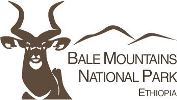Altitude Sickness: Because most people coming to the Bale Mountains first spend time in Addis, few, if any, suffer from altitude sickness (Acute Mountain Sickness, AMS). Acclimatization is the only way to prevent it, starting at an altitude of about 1,500m. Cold, wind, dehydration, strenuous exercise while dehydrated and common colds predispose people to AMS. Many people, however fit, sometimes feel unwell when arriving at high altitudes. Symptoms include headaches, lightheadedness and fatigue, but staying hydrated can help to alleviate these. If there is no change in symptoms, the cure to AMS is simple: rapidly descend to lower altitudes.
Malaria: Bale Mountains National Park is malaria free, so medication is not necessary. However, you may pass through areas with malaria en route to the park or at other nearby attractions.
Petty crime: Take the same precautions you would while travelling anywhere; petty crime is rare, but does sometimes occur, within the Bale Mountains.
Other dangers: There are no venomous spiders or snakes in the Bale Mountains - apart from some, very seldom seen, snakes in the Harenna forest.
Rabies exists within the domestic dog population of the Bale Mountains and dogs sometimes attack people. Maintain a safe distance from all dogs, and if approached by a dog, stand your ground and pretend to throw a rock; this should scare it away.
